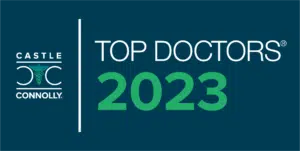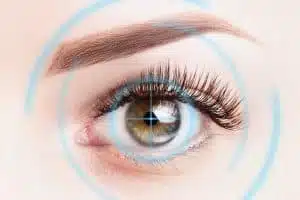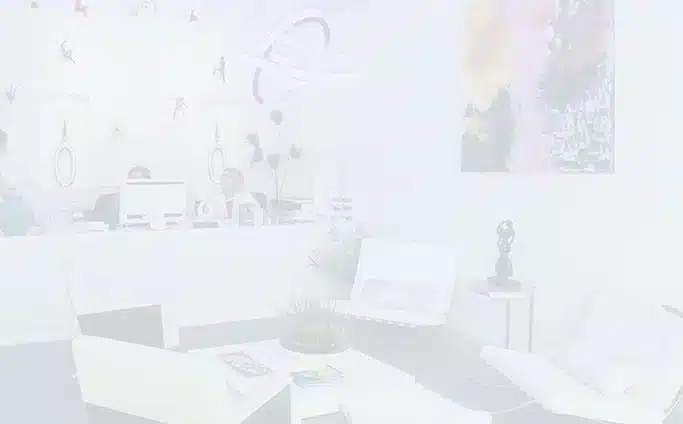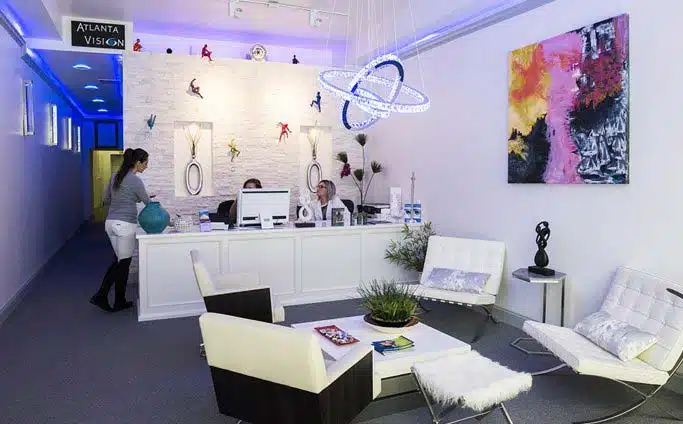Also Offering LASIK for Dunwoody & Johns Creek
 Dr. M Farooq Ashraf, MD, FACS has once again been voted Best Ophthalmologist in Atlanta by his peers, a distinct honor that reflects his passion and commitment to providing his patients with top quality eye care treatments and services. Whereas large, corporate laser vision correction centers are struggling to attract new patients, Dr. Ashraf and the team at The Atlanta Vision Institute are proud to be recognized once again as the premier option for vision correction in and around Atlanta. Schedule your free consultation today to learn why Dr. Ashraf’s patients and his peers hold him in such esteem.
Dr. M Farooq Ashraf, MD, FACS has once again been voted Best Ophthalmologist in Atlanta by his peers, a distinct honor that reflects his passion and commitment to providing his patients with top quality eye care treatments and services. Whereas large, corporate laser vision correction centers are struggling to attract new patients, Dr. Ashraf and the team at The Atlanta Vision Institute are proud to be recognized once again as the premier option for vision correction in and around Atlanta. Schedule your free consultation today to learn why Dr. Ashraf’s patients and his peers hold him in such esteem.
Take Our Free LASIK test to Find Out if You’re a Candidate
What Can Laser Vision Correction Treat?
Laser vision correction treats a range of vision issues, including nearsightedness (myopia), farsightedness (hyperopia) and astigmatism. These vision problems are the result of an irregularly shaped cornea. The cornea is responsible for bending, or refracting, light entering the eye onto the retina. When the cornea has an irregular shape, it cannot focus light directly on the retina — instead, it focuses light in front of or behind the retina, or at multiple focal points. For someone who is nearsighted or farsighted or who has astigmatism, prescription lenses are necessary to see clearly.
Laser vision correction surgery precisely reshapes the cornea so incoming light is focused directly on the retina. The laser precisely reshapes corneal tissue to change the cornea’s curvature. After laser vision correction, patients are free from the burden and inconvenience of prescription eyeglasses and contact lenses. Most patients will achieve their desired target vision prescription with laser vision correction.
In addition to traditional LASIK, there is Zeiss SMILE vision correction. This procedure reshapes the cornea without making or cutting a flap. This is advantageous to active individuals, law enforcement and military personnel, for whom a flap may be risky. Also Zeiss SMILE is advantageous to patients that may be at risk for dry eyes.
Benefits of LASIK/Zeiss SMILE
Laser vision correction provides clear vision with little to no need for glasses or contact lenses. Patients can go about their daily routines and enjoy their favorite physical activities with crisp, detailed vision.
Laser vision correction is a wise financial investment that pays for itself over time, as patients no longer need to spend money on new glasses, contact lenses or cleaning supplies.
The laser eye surgery itself is a quick procedure and virtually painless. There is very little downtime needed, and patients can resume work and most of their normal schedule quickly after surgery.
Many patients notice an improvement in their vision either the day of surgery or the following day. The results of surgery are considered permanent (although the eyes will continue to age over time).
How to Qualify for LASIK
You’ll know if you qualify for LASIK eye surgery after a complimentary consultation performed by our LASIK surgeon, Dr. Farooq Ashraf. During the consultation, he will ask you a series of questions and perform the eye tests necessary to determine whether or not you’re a candidate for LASIK. You’re welcome to take our quick online Vision Test that will be a good indicator of whether or not you should schedule a consultation for LASIK.
What To Expect from the LASIK Procedure
If you do qualify for LASIK, here’s what you can expect from the procedure:
- Plan to arrive at our Johns Creek office location where the surgery will be performed (you should have a relative or someone you know and trust drive you to your LASIK surgery and back to your home when it’s over).
- Before the LASIK surgery, our staff and surgeon will explain everything in detail so you feel confident about what to expect before, during and after the surgery. You can also expect our staff to numb your eyes with eye drops just prior to the surgery. You will be AWAKE for the surgery.
- For most patients, the entire process of LASIK takes 10 minutes; the actual laser treatment time takes just 15 to 90 seconds, depending on the degree of correction required. Total time at the center on the day of the procedure will be about an hour.
You can read our LASIK FAQs to answer any questions you may have prior to scheduling your appointment.
LASIK Procedure Details
For both LASIK and PRK, experienced Atlanta ophthalmologist Dr. Farooq Ashraf uses an advanced laser to reshape the cornea. In LASIK, the laser reshapes the middle layer of the cornea. Dr. Ashraf makes a microscopic incision in the cornea to create a flap. The flap is moved aside to allow access to the cornea, which is precisely reshaped by your surgeon to refocus the image that is projected on your retina. After this reshaping, the flap is moved back into position, allowing for efficient healing. This is an outpatient procedure that takes less than a half hour and uses local anesthetic, although additional sedation may be provided on request. You may notice a feeling of slight pressure on the eye, but most patients report no discomfort.
LASIK Recovery
Your eyes begin healing immediately after your LASIK procedure, and you should begin seeing clearly within 8 hours. Over the next few months, your vision will adjust to the new cornea shape until you achieve maximum clarity. During the recovery period, some patients report slight fluctuations in vision, sensitivity to light, halos around lights, occasional blurring and difficulty with night driving. In addition, it is not uncommon to experience dry eyes for weeks or months. Make sure to keep your follow-up appointments with experienced Atlanta ophthalmologist Dr. Farooq Ashraf, as it allows him to measure the changes in your vision and check for any complications. Give your eyes room to heal efficiently by avoiding makeup, swimming, vigorous physical activity, contact sports and especially rubbing the eyes. Your doctor will also advise you when it is safe for you (and other motorists) to resume night driving.
Laser Eye Surgery Cost
Dr. Ashraf believes in providing top quality surgical care at the best prices. He never cuts corners just to offer low prices, nor does he rely on questionable marketing tactics to “bait and switch” candidates just to get them in the door for consultations. Our practice’s straightforward pricing model gives patients peace of mind that they are getting a good value for their money.
When you trust your care to Dr. Ashraf, you can have it all: the finest technology, an experienced laser eye surgeon and clear, reasonable pricing. For up-to-date information about surgery costs, please contact us and request a consultation today.
Why Choose Dr. Ashraf for LASIK?
With three convenient, easy-to-get-to locations in Atlanta, Johns Creek, and Dunwoody, Atlanta Vision Institute makes getting clear vision simple. Each location offers professional, friendly staff that will go above and beyond in every step of the procedure’s process to ensure that every patient is confident they are getting the best care possible.
Dr. Ashraf and the entire staff at Atlanta Vision Institute are committed to helping each and every patient with his/her eye needs. From consultation to your post-op checkup, we’ll be here for you throughout the entire process. Here are just some of the reasons why people opt for having their LASIK eye surgery performed at Atlanta Vision Institute:
- Our open and consistent communication with our patients, which includes taking all the time they need to address and answer all questions and concerns
- Our LASIK surgeon’s experience, qualifications, professionalism, and personable and caring bedside manner
- Our pleasant, warm and welcoming staff that delivers a personal touch to every patient’s experience
- The latest and most advanced technology that we’ve invested in so each patient can have the best for their eyes
We’ll go above and beyond for you! Just read our patient reviews and watch our video testimonials to learn more.
Zeiss SMILE Laser Eye Surgery

Zeiss SMILE is an excellent option for those who live an active lifestyle or work in a rigorous career field and want to reduce or eliminate prescription glasses and contact lenses. The procedure is often a better choice for these patients because an active lifestyle can dislodge or disrupt the healing of the corneal flap used in LASIK. Zeiss SMILE might be the ideal laser eye surgery for people who work with occupational hazards, such as firefighters, police and military personnel.
The Zeiss SMILE procedure uses a femtosecond laser to reshape the cornea (just like LASIK and PRK) but doesn’t require a flap or removal of the epithelium. The microscopic incisions typically heal in one day, offering a recovery twice as fast as LASIK. Zeiss SMILE can improve nearsightedness from -1 to -10 diopters and astigmatism up to three diopters.
If you have nearsighted vision with or without astigmatism, Zeiss SMILE may be right for you. Candidates should generally be at least 18 years old with a stable prescription. Dr. Ashraf and his experienced team at The Atlanta Vision Institute will discuss your laser vision correction options during your eye exam and consultation.
LASIK FAQs
Why has LASIK Become the Procedure of Choice for so Many Patients and Surgeons?
Because the healing occurs in the interior of the cornea, no regrowth of surface cells is necessary. The corneal flap protects the treated area and there is usually little, if any, post-op discomfort. Visual rehabilitation is much quicker than other refractive surgical procedures, and regulation of the healing process with long term post-op drops is unnecessary since the center of the cornea tends to have much less of a healing reaction than the surface.
If I Have LASIK, What Kind of Vision can be Expected the Following Day?
Most patients experience a large improvement in their vision the first day after LASIK, usually 20/40 or better. Results depend to a large extent on the patient’s preoperative prescription. In general, patients can expect to regain approximately 90 to 95 percent of their vision in the first two to three days after LASIK. The remainder of their vision will improve gradually over several weeks. Patients with significant astigmatism or who are very nearsighted or farsighted may experience slower sight recovery and stabilization.
How Do LASIK and PRK Work?
In both procedures, a specially-trained ophthalmologist uses the computer-guided excimer laser to gently remove a thin layer of tissue from the cornea to achieve a desired correction. Prior to the procedures, drops are placed in the eye to numb it (similar to what an eye doctor uses to check eye pressure for a glaucoma test) and an instrument called a speculum is placed in the eye to prevent the patient from blinking. In PRK, the surgeon first removes the surface cells of the cornea using the laser before sculpting the underlying tissue, and then surface cells regenerate over the next 48 to 72 hours under a bandage contact lens. No needles are used, and the patient does not normally experiences any pain. In LASIK, a femtosecond laser is used to separate a thin layer of the corneal tissue, which is left attached on a hinge. The excimer laser is then used to sculpt tissue from the corneal bed and the flap is floated back into place, reattaching without the need for sutures.
Can I Wear Contact Lenses after Laser Surgery?
Patients who were able to wear contacts prior to surgery should be able to wear them afterwards.
What are the Side Effects of this Surgery?
The vast majority of patients have no serious side effects. The most common complaint after laser vision correction is dry eyes. Patients at particular risk are those who have dry eyes prior to vision correction. Dr. Ashraf will perform a complete eye exam prior to laser surgery and if called for, he may initiate dry eye treatments prior to the procedure for some patients. The majority of dry eye cases usually resolve within a few weeks following surgery. Another complaint after surgery is the “halo” effect and some glare at night around lights. However, these problems are no worse than what most contact lens and eyeglass wearers often experience and the majority of patients function without any visual impairment at night. Using the Wavelight Allegretto laser, we can expand the treatment areas, thereby reducing the risk of side effects in patients with larger pupils.
Who cannot have laser eye surgery?
Some pre-existing eye conditions preclude interested candidates from laser eye surgery. For example, individuals with glaucoma, cataracts or uncontrolled eye infections should not have surgery, as these conditions can increase the risk of complications during or after surgery.
Your personal eligibility for surgery will be determined during a one-on-one consultation with Dr. Ashraf, at which time he will learn more about your eye health and medical history.
Will I have 20/20 vision after laser eye surgery?
There is no way to guarantee your vision will be perfect after LASIK/Zeiss SMILE. However, rest assured that the majority of our LASIK/Zeiss SMILE patients are significantly less dependent on glasses and contacts after surgery. Most patients do not need glasses for their daily activities, such as driving, watching television, working on a computer and playing sports. Dr. Ashraf can give you a reasonable idea of what your vision will be like after surgery when you consult with him about LASIK or Zeiss SMILE.
Is There a Limit to the Degree of Nearsightedness LVC Can Correct?
The corneal thickness measurement is a very important test and can be the major limitation for LASIK. This measurement is a standard test at the Atlanta Vision Institute. In these situations, PRK is an alternative to LASIK.

Please Take Our LASIK or Cataract Surgery Quiz
Take our vision quiz to find out if you qualify for LASIK or cataract surgery!


